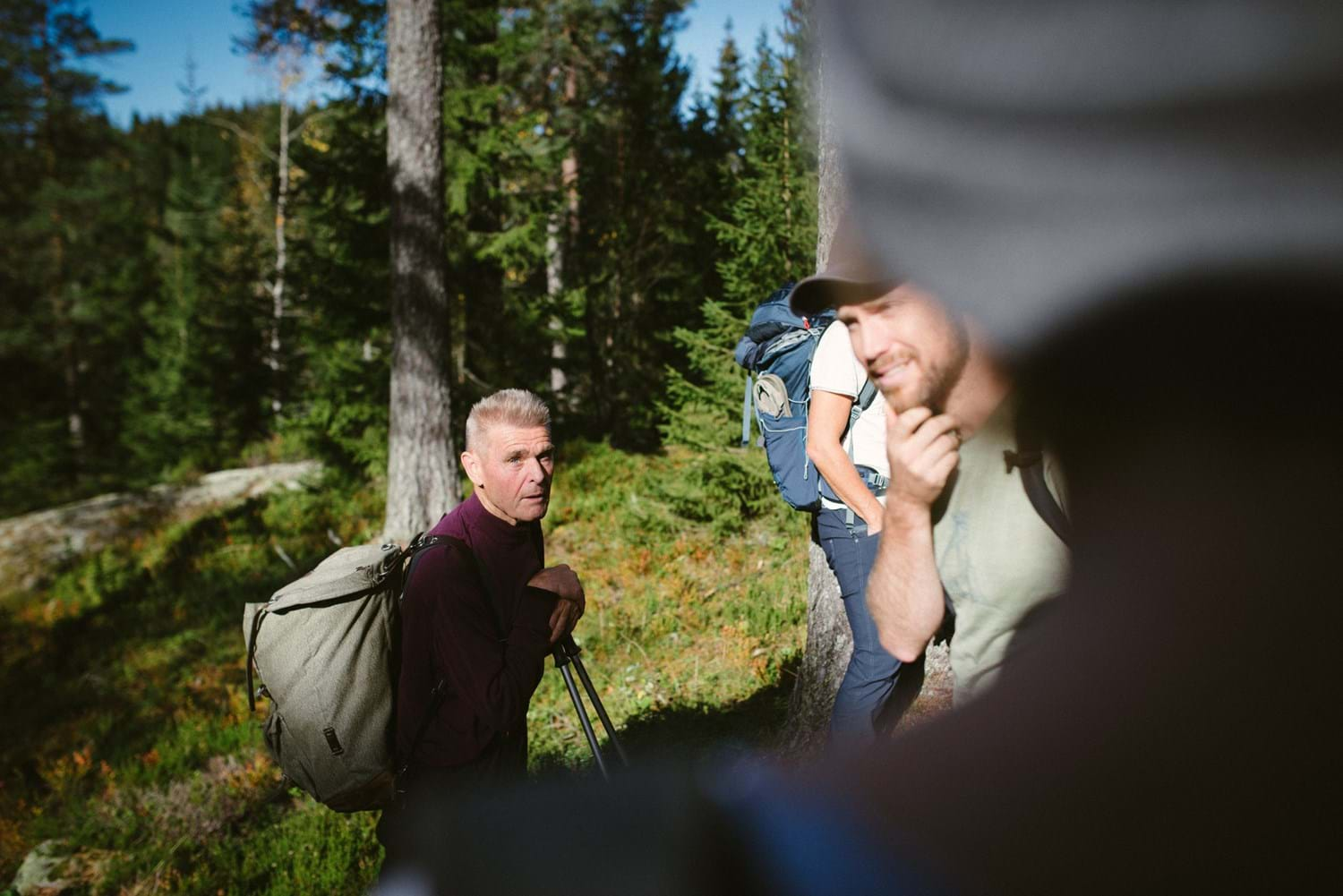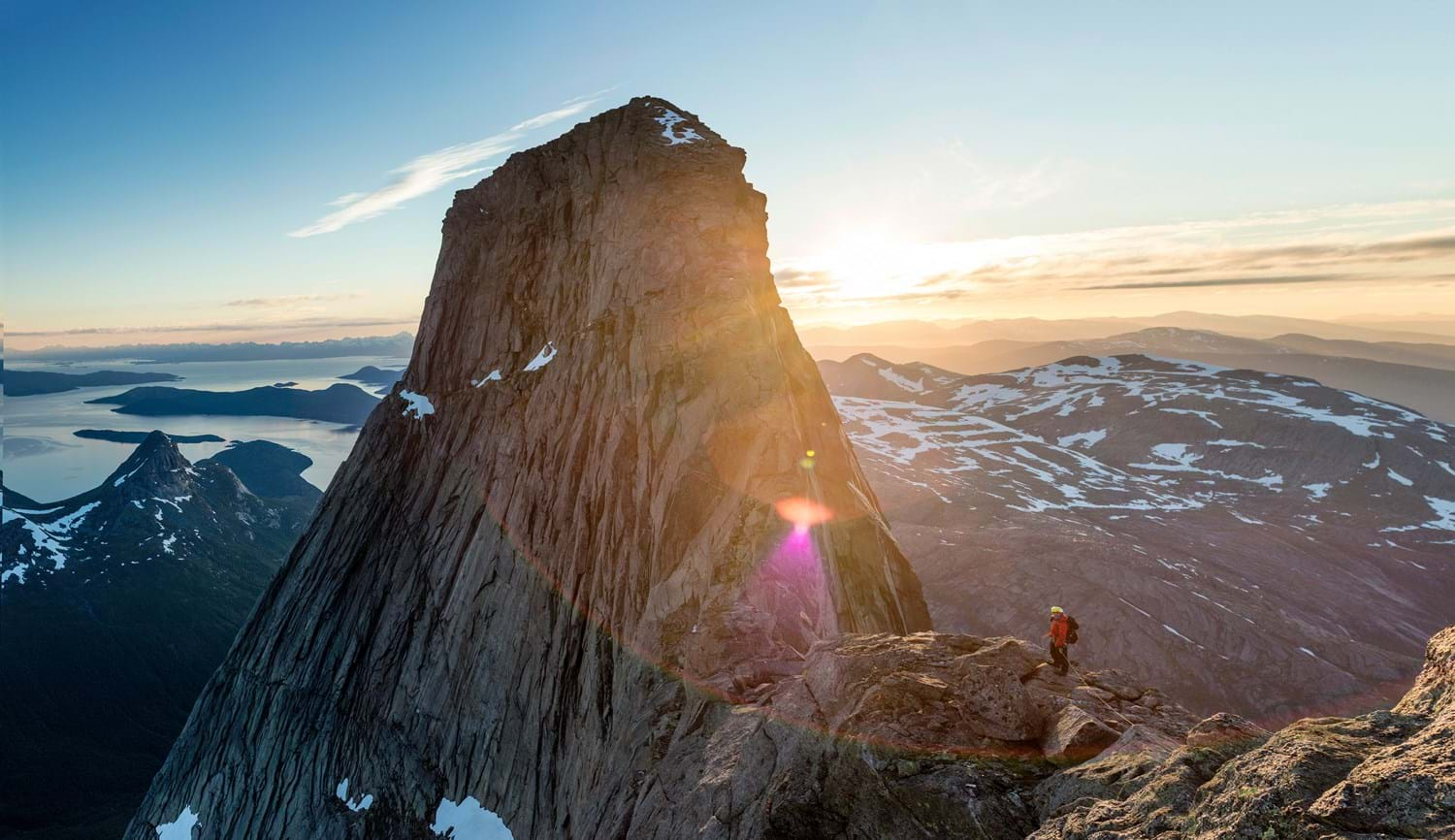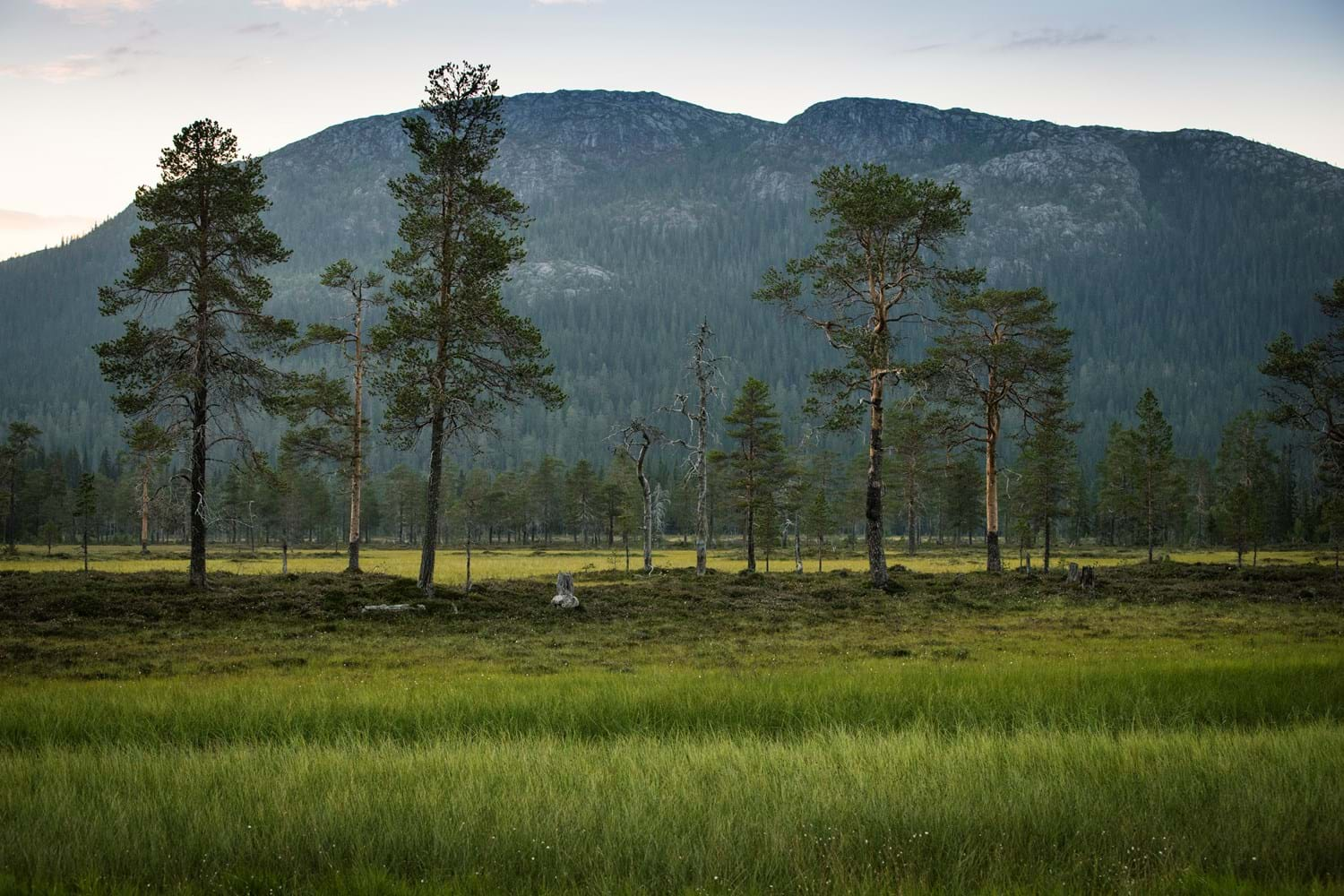Oct 11, 2017
Nils Faarlund and the Stetind Declaration
Nils Faarlund is a living legend in the Nordic outdoor community. We had a conversation about humanity, philosophy and our place in nature.

Nils Faarlund during a Houdini Hangout in Nordmarka, Norway.
In the summer of 1966 a young bio engineer, a philosophy professor and three of Faarlunds rope mates shared a camp below Stetind, the iconic mountain in Arctic Norway.
- Provoked by the devastation that engineers had caused to the mountain landscape, I told Arne about a new science called ecology that I had stumbled on during my one year scholarship, at the University in Hannover.
The engineer was Nils Faarlund and the professor was Arne Naess, head of the Institute of philosophy at the University of Oslo. They shared a passion for mountaineering and were searching for new lines at the one kilometer high South face of Stetind. Nils had started a mountaineering club at the Norwegian University of Science and Technology and he had convinced the acclaimed mountaineer and philosopher Næss to join the four members of the club for the Stetind project.
- We could tempt him with the new CrMo pitons, an invention from the Yosemite valley in California, Nils says with a smile.
The group spent the days making 1960s state of the art big wall climbs and the nights discussing problems in science and philosophy. Nils and his friends in the mountaineering club had seen the effects of Norway’s rebuilding after the second world war. On their excursions, they discovered huge dams, emptied lakes and rivers reduced to creeks. They felt an anger and a will to stop the destruction of wilderness, but felt they lacked the arguments.
The central idea is that every living being has the right to live and flourish. Accordingly free nature has intrinsic value – beyond what we can use it for.
- Our breakthrough came when Arne introduced the thinking of Spinoza, the 17th century philosopher. When we combined the objective science of ecology with Spinoza’s ideas about the inherent value of nature, we reached the foundations of what later was named eco-philosophy, deep ecology or ecosophy.
The central idea is that every living being has the right to live and flourish. Accordingly free nature has intrinsic value – beyond what we can use it for. The perspective of modernity that puts us above nature is destructive, and thus not fruitful in the long run. The world is a complex whole of living beings that exist in a subtile equi librium. Altering the subtile whole of nature have grave consequences both for ourselves and other beings. In modernity our mission is to learn about nature and understand how to adapt to it. Not the other way around.
The pattern of thought which emerged under Stetind in the summer of 1966, were the following years developed into an efficient way to counter the exploitation politics. A fast growing network of students for 'the greening of Norway', young academic professionals and political activists in a series of workshops and seminars came up with a fundamental criticism of the economic growth model as the backbone of life in modernity – the eco-philosophy movement.

The mighty Stetind, Norway's national mountain. Photo by Oskar Kihlborg.
This adaption of the Stetind pattern of thinking was brought to a striking public breakthrough during the Mardoela non-violent action struggle in 1970 in defence of a breath-taking mountain landscape in Eikesdalen. With the help of Norwegian media in lack of other sensations during the summer vacations a new world view was efficiently made public. They started winning fights over new dam constructions, and the thinking became influential in Norwegian politics, as well as in higher education, friluftsliv – out of doors fostering – civil and military leadership training.
Whereas Arne Naess with success brought ecosophy into the philosophical discourse abroad, Nils started Norges Høgfjellsskole, a school for mountain explorations, as a way of spreading the message and creating new “friends of nature” as Nils puts it. Leaving his research work in biochemistry after the Stetind summer to start a mountaineering school was a big step for Nils but together with his wife and two year old son, he left the laboratories behind and moved to Hemsedal in the central Norwegian mountain range.
Originally, Nils was supposed to take over the farm he had grown up on that had been in the family for generations. His father and grandfather were farmers but also brennerimestere, master distillers, liqour makers, a prestigious position. To be able to develop the traditional distillery and the farm, Nils’ father had encouraged him to apply for the Technical University in Trondheim. Nils was accepted and this is where he fell in love with mountaineering and came across ideas of ecology and philosophy.
Friluftsliv is a way to embody the values of eco-philosophy. Being in nature and experiencing the harmony with nature can bring true joy to us.
- I grew up in the 1940s with organic farming and livestock grazing in the neighbouring woods, Nils says. At that time playing and strolling around in the woods was part of the lifestyle in the Norwegian countryside. It was only later that he discovered the potential of friluftsliv in the Norwegian tradition, as a force for joy and political change. Nils uses the Norwegian word friluftsliv in English too, claiming it to be impossible to translate. It means roughly “to spend time in the outdoors”, but it has a meaning beyond “outdoor life”. It’s a word deeply rooted in the Norwegian culture and always top the charts of the most beloved words in Norway. It means to venture into nature, not for sports or a certain activity, but to enjoy the dialogue with free nature and be affected by the encounter.
- Friluftsliv is a way to embody the values of eco-philosophy. Being in nature and experiencing the harmony with nature can bring true joy to us. As humans we are born to it. That’s how we survived as a species. By understanding and learning about nature. The feeling of joy that we can experience when we spend time in nature is our bodies’ way of rewarding us for learning.
Nils turns 80 this year, and it’s over 50 years since the pondering at Stetind started forming a philosophy for the escape from the brutal ways of modern life. The oil age, boosting the country to the most affluent society in the world, efficiently muted eco-philosophical thought in Norway. But the pattern of thought was not obsolete. In 2010 Council for Eco-philosophy, a group of six of whom 3 belonged to the Stetind team, published 'The Stetind Declaration'. The document sets the foundations of the philosophy. Reading the manifest, you will be amazed how relevant the thoughts are in our time. Perhaps more relevant than ever before.

"The world is a complex whole of living beings that exist in a subtile equi librium."
The Stetind Declaration
We have gradually come to realize:
That our way of life has fateful consequences for nature and human- kind, and thus for all life on Earth. The challenges we face as individuals and as a community are not merely of an economical and technological nature. They concern our basic values and our fundamental conception of what it means to be human.
We acknowledge that:
Nature and humankind constitute a whole and share a common destiny. Nature is the home of culture. Life is like a woven fabric of relations. To live is to be dependent. The value of nature and human dignity are intrinsically linked. What we do to nature, we do to ourselves. All life is vulnerable and therefore under threat. Concern for nature implies a concern for greater justice: Our way of life affects in particular the poorest among us, indigenous peoples, and future generations.
We will:
Work to promote a renewed understanding of the relationship between nature and humankind. Strive to base our choices, both as individuals and as a community, on this understanding. Discover the joy of living in harmony with nature: There is no path to harmony with nature. Harmony with nature is the path. Humankind possesses great capacity both to create and to destroy. At this crucial point in time we will take responsibility and commit ourselves to thinking and living in a way that promotes life.
Houdini Sportswear. All rights reserved.